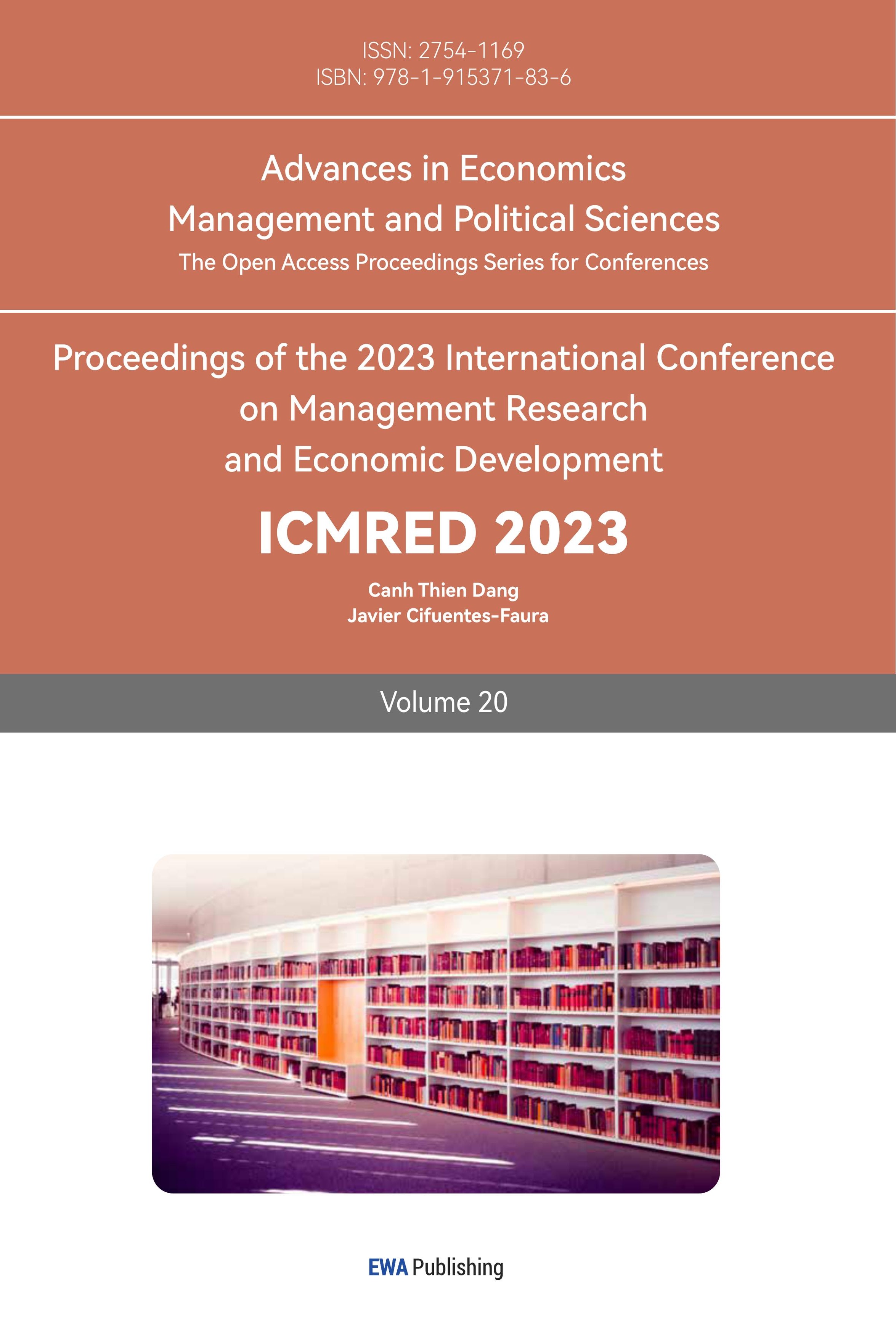References
[1]. Project Management Institute. A Guide to the Project Management Body of Knowledge (PMBOK® Guide) – Sixth Edition and The Standard for Project Management. Project Management Institute. Chicago. pp. 3.2018.
[2]. Heldman, K. PMP: project management professional exam study guide (Ninth edition.). Sybex. Indianapolis. pp. 62-64.2018.
[3]. Smith, P. Project Cost Management – Global Issues and Challenges. Procedia - Social and Behavioral Sciences, 2014, Volume 119, pp. 485-494.
[4]. Segelod, E. Project Planning, Cost Estimates, and Deviations in Major Projects. In Project Cost Overrun: Causes, Consequences, and Investment Decisions. Cambridge. University Press. Cambridge. pp. 11-34. 2017.
[5]. DeCoster, DT. PERT/Cost: The Challenge. Management Services: A Magazine of Planning, Systems, and Controls,.1964. Vol.1. pp.13-19.
[6]. Fleming, Q. W. Cost/schedule control systems criteria: The management guide to C/SCSC. Irwin Professional Publishing. Probus Publishing company. Chicago. 1992.
[7]. Kim, E.H., Wells, W.G., Duffey, M.R. A model for effective implementation of Earned Value Management methodology. International Journal of Project Management. 2003. Vol. 21. pp. 375-382.
[8]. Narbaev, T., Marco, A.D., Combination of growth model and earned schedule to forecast project cost at completion. Journal of Construction engineering and management.2014.
[9]. Colin, J., Martens, A., Vanhoucke, M., et al. A multivariate approach for top-down project control using earned value management. Decision Support Systems. 2015. pp. 65-76.
[10]. Bagshaw, K. B. PERT and CPM in Project Management with Practical Examples. American Journal of Operations Research. 2021. pp. 215-226.
[11]. Yan, S. Project cost planning and cost control. China equipment engineering. 2022. pp. 21-23.
[12]. Hwang, B. G., Shan, M., Zhu, L., & Lim, W. C., Cost control in megaprojects: efficacy, tools and techniques, key knowledge areas and project comparisons. International Journal of Construction Management. 2020. pp. 437-449.
[13]. Koke, B., Moehler R.C., Earned Green Value management for project management: A systematic review. Journal of Cleaner Production. 2019. Volume 230. pp.180-197.
[14]. Miguel, A., Madria, W., Polancos, R. Project Management Model: Integrating Earned Schedule, Quality, and Risk in Earned Value Management. 2019 IEEE 6th International Conference on Industrial Engineering and Applications (ICIEA). Tokyo. pp. 622-628. 2019.
Cite this article
Li,W. (2023). Application of Earned Value Management in Project Management. Advances in Economics, Management and Political Sciences,20,101-109.
Data availability
The datasets used and/or analyzed during the current study will be available from the authors upon reasonable request.
Disclaimer/Publisher's Note
The statements, opinions and data contained in all publications are solely those of the individual author(s) and contributor(s) and not of EWA Publishing and/or the editor(s). EWA Publishing and/or the editor(s) disclaim responsibility for any injury to people or property resulting from any ideas, methods, instructions or products referred to in the content.
About volume
Volume title: Proceedings of the 2023 International Conference on Management Research and Economic Development
© 2024 by the author(s). Licensee EWA Publishing, Oxford, UK. This article is an open access article distributed under the terms and
conditions of the Creative Commons Attribution (CC BY) license. Authors who
publish this series agree to the following terms:
1. Authors retain copyright and grant the series right of first publication with the work simultaneously licensed under a Creative Commons
Attribution License that allows others to share the work with an acknowledgment of the work's authorship and initial publication in this
series.
2. Authors are able to enter into separate, additional contractual arrangements for the non-exclusive distribution of the series's published
version of the work (e.g., post it to an institutional repository or publish it in a book), with an acknowledgment of its initial
publication in this series.
3. Authors are permitted and encouraged to post their work online (e.g., in institutional repositories or on their website) prior to and
during the submission process, as it can lead to productive exchanges, as well as earlier and greater citation of published work (See
Open access policy for details).
References
[1]. Project Management Institute. A Guide to the Project Management Body of Knowledge (PMBOK® Guide) – Sixth Edition and The Standard for Project Management. Project Management Institute. Chicago. pp. 3.2018.
[2]. Heldman, K. PMP: project management professional exam study guide (Ninth edition.). Sybex. Indianapolis. pp. 62-64.2018.
[3]. Smith, P. Project Cost Management – Global Issues and Challenges. Procedia - Social and Behavioral Sciences, 2014, Volume 119, pp. 485-494.
[4]. Segelod, E. Project Planning, Cost Estimates, and Deviations in Major Projects. In Project Cost Overrun: Causes, Consequences, and Investment Decisions. Cambridge. University Press. Cambridge. pp. 11-34. 2017.
[5]. DeCoster, DT. PERT/Cost: The Challenge. Management Services: A Magazine of Planning, Systems, and Controls,.1964. Vol.1. pp.13-19.
[6]. Fleming, Q. W. Cost/schedule control systems criteria: The management guide to C/SCSC. Irwin Professional Publishing. Probus Publishing company. Chicago. 1992.
[7]. Kim, E.H., Wells, W.G., Duffey, M.R. A model for effective implementation of Earned Value Management methodology. International Journal of Project Management. 2003. Vol. 21. pp. 375-382.
[8]. Narbaev, T., Marco, A.D., Combination of growth model and earned schedule to forecast project cost at completion. Journal of Construction engineering and management.2014.
[9]. Colin, J., Martens, A., Vanhoucke, M., et al. A multivariate approach for top-down project control using earned value management. Decision Support Systems. 2015. pp. 65-76.
[10]. Bagshaw, K. B. PERT and CPM in Project Management with Practical Examples. American Journal of Operations Research. 2021. pp. 215-226.
[11]. Yan, S. Project cost planning and cost control. China equipment engineering. 2022. pp. 21-23.
[12]. Hwang, B. G., Shan, M., Zhu, L., & Lim, W. C., Cost control in megaprojects: efficacy, tools and techniques, key knowledge areas and project comparisons. International Journal of Construction Management. 2020. pp. 437-449.
[13]. Koke, B., Moehler R.C., Earned Green Value management for project management: A systematic review. Journal of Cleaner Production. 2019. Volume 230. pp.180-197.
[14]. Miguel, A., Madria, W., Polancos, R. Project Management Model: Integrating Earned Schedule, Quality, and Risk in Earned Value Management. 2019 IEEE 6th International Conference on Industrial Engineering and Applications (ICIEA). Tokyo. pp. 622-628. 2019.









